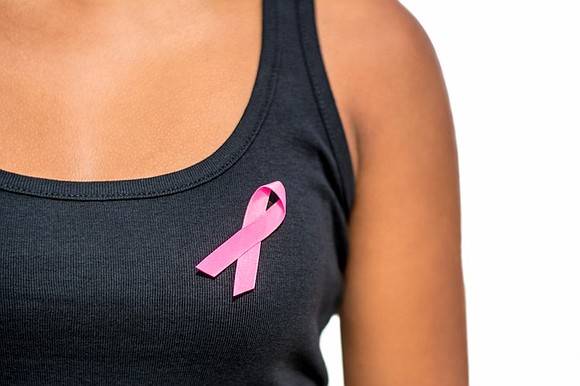Who Is Most At Risk of Breast Cancer?
Style Magazine Newswire | 10/20/2017, 12:42 p.m.
Source: BlackDoctor.org
Like all disease, breast cancer does not discriminate based on race, color, gender, identity or even social status. Still, according to experts, some are at more risk than others.
“The people most at risk for breast cancer are people that have genetic mutations that increase their risk for breast cancer,” Chicago-based OB/GYN, Dr. Idries Abdur-Rahman, tells BlackDoctor.org. “The most common genetic mutations are BRCA-1 and BRCA-2 which are associated with a 60 percent and 45 percent lifetime risk respectively.”
Everyone has BRCA-1 and BRCA-2 genes, according to the site BreastCancer.org. However, studies suggest that Black women have a higher rate of abnormal BRCA genes.
“Having said that, only 10 percent of breast cancers are genetic meaning that 90 percent of breast cancers are sporadic (no prior family history),” added Dr. Idries. “So, while a genetic mutation/family history puts you at higher risk for breast cancer, the majority of breast cancers are neither genetic nor familial and with 12 percent of women being diagnosed with breast cancer, all women are at risk.”
This is a statement the Centers for Disease Control and Prevention (CDC) echoes. Not counting some forms of skin cancer, breast cancer is the most common cancer in women, no matter race or ethnicity. It’s also the most common cause of death among Hispanic women and the second most common cause of death from cancer among White, Black, Asian/Pacific Islander, and American Indian/Alaska Native women, the agency reports.
Despite a large body of research, there are still many misconceptions surrounding ones’ risk of getting breast cancer. The biggest? “By far I think the biggest misconception is that you are only at risk for breast cancer if you have a family history. I have so many patients who resist getting a mammogram because they say they have no family history. Again, 90 percent of new breast cancer patients had no prior family history,” said Dr. Idries.
Other risk factors include:
• The risk for breast cancer increases with age; with most cases diagnosed after age 50.
• Women who start their menstrual cycle before age 12 are exposed to hormones longer, raising their risk by a small amount.
• Getting pregnant after the age of 30 or never experiencing a full-term pregnancy can raise breast cancer risk.
• Not being physically active can put women at a higher risk of getting breast cancer.
• Older women who are overweight or obese after menopause have a higher risk of getting breast cancer than those at a normal weight.
• Taking certain forms of birth control pills have been found to raise the risk of breast cancer.
• Women who have undergone radiation therapy to the chest or breasts for treatment of illnesses like Hodgkin’s lymphoma – a cancer of the immune system — before age 30 have a higher risk of developing breast cancer later in life.
• Studies have shown that drinking excessive alcohol can also increase a woman’s risk for breast cancer.
• If you have a family history of breast cancer, you may be a candidate for genetic testing. Discuss this option with your doctor.
Ruthie Hawkins, BlackDoctor.org Contributor






